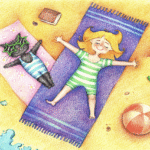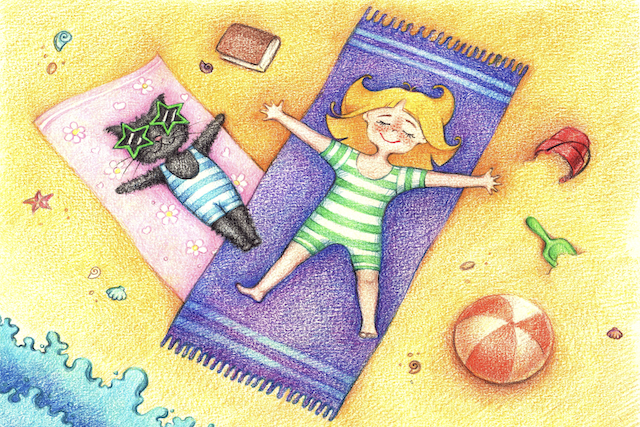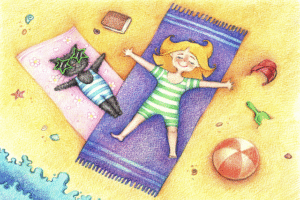Memes are a form of digital storytelling, except instead of hunting scenes, it’s a sloth giving side-eye with the caption: “If I delete my Instagram, my social anxiety will delete itself too.” And it spreads, because it’s a blunt snippet that somehow captures our collective anxiety in one post.
What Are Memes?
Memes are Gen Z’s language for distilling heartbreak, social anxiety, ADHD, or depression into bite-sized truths that spark awareness.
Memes are visual observations and cultural commentaries that compress complex feelings into humor, irony, or absurdity. Whether it’s SpongeBob eating an ice cream or a blurry photo of Ryan Gosling mid-existential crisis, memes let us feel seen and help us make sense of our internal chaos. In a world of shrinking attention spans and relentless information overload, they’re the messy translations for the feelings we’re taught to dismiss.
As a therapist, I’m always excited when Mental health enters mainstream conversation, whether it’s through scribbling in a workbook, venting in session, or scrolling a carousel of memes about dissociating in Starbucks.
The Pros of Memes
Validation: Memes can name what we’re feeling or normalize the patterns we keep repeating. “That’s so me” can transform into “I feel seen.” Memes have the power to put words to what we are scared of admitting.
Humor: Laughing at a meme about emotional eating or intrusive thoughts doesn’t trivialize them, it helps create an appropriate distance, allowing us to process these feelings without being overwhelmed. Humor is a highly efficient coping strategy that helps us confront difficult emotions. From a scientific perspective, laughter relaxes the mind and body, triggers the release of endorphins, and lowers the stress hormone cortisol.
Storytelling: Memes are observations and cultural commentaries providing a window into the intricacies of the human condition.
Reframing: By turning distressing thoughts into light, humorous content, memes encourage reframing. Looking at our situation from a different perspective can reduce the emotional weight of the challenges we are facing.
Building a Sense of Community: Shared memes can reduce the sense of isolation by reminding us that someone else is having similar experiences, which fosters belonging.
Breaking Stigma: Humor creates psychological distance that makes talking about taboo topics like trauma, suicidality, or OCD rituals feel less threatening. Serious issues presented safely enough allows engagement and conversation to happen, rather than avoidance, or shame.
Psychoeducation: Memes often condense psychological insights into easy-to-digest content and help narrate experiences that might otherwise get lost in clinical jargon.
The Cons of Memes
Trivializing the Condition: Memes can easily feed into stereotypes and miss the nuances and subjectivity of one’s experience.
Re-traumatization: Memes risk containing triggers, and when shared without warning, can cause re-traumatization.
Fostering Avoidance: Memes can emphasize a “laugh it off” strategy, which might prevent people from addressing serious concerns and leave Mental health struggles untreated.
Desensitization: Memes can make serious Mental health struggles like eating disorders or suicidality seem widespread and normal, preventing people from getting the help they need or others from noticing warning signs.
Self-Diagnosis: Memes can spread oversimplified or inaccurate psychological concepts, leading people to self-diagnose without clinical guidance. Terms like “narcissist,” “trauma,” “OCD,” and “ADHD” are often misused, leading to inaccurate labeling and a skewed sense of self.
How to Use and Create Mental health Memes Safely
Add a Trigger Warning: If your meme ventures into heavy themes such as suicidality, sexual trauma, or eating disorders, add a clear trigger warning to prevent unintentional re-traumatization. A simple “TW: Suicide” or “TW: Trauma” in the caption can go a long way.
Know the Limits: Memes are meant to laugh with people, not at them. Their purpose should be to create connection, not humiliation. If your meme mocks or belittles serious Mental health conditions, even if you personally struggle with them, pause and rethink what you are doing.
Include Resources: Memes do not replace therapy, medication, or crisis support. If you are posting memes about serious Mental health concerns, consider adding helpline numbers, links to crisis resources, or therapy directories. A laugh can open a door, but people need to know where to go next.
Stay Accountable: Take responsibility for the memes you create and share. If someone responds negatively, listen without defensiveness. Humor is subjective, but it’s important to respect someone else’s experience and validate their reaction.
Be Mindful of Your Own Consumption: Pay attention to how memes make you feel. If you notice that your feed is reinforcing negative beliefs about yourself or your Mental health, curate your content. Balance humor with positivity, education, and effective Coping strategies.
Avoid Plagiarism: Memes are a form of creative expression. When possible, credit original meme creators or artists.
Memes are digital postcards. They won’t cure Mental health struggles, but they might remind someone they’re not alone in them. And sometimes, that’s enough to get you through the day, until the next raccoon-in-a-shopping-cart meme drops.













